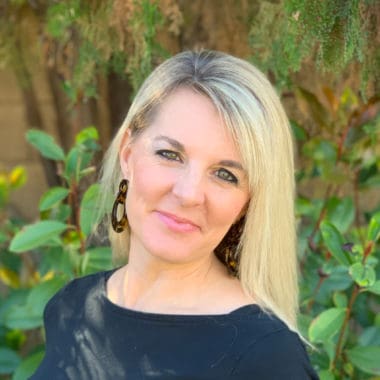This Present Paradise
A Series of Reflections on St. Elizabeth of the Trinity
(Start with part 1 here.)
Our name. It is one of the earliest sounds we recognize as a baby and one of the first things we write in scrawling letters as a child. It is a part of who we are; it shapes our identity and has such significance that just hearing it calls to mind a whole person—character, appearance, history, and heart. It holds a hope, too, that when the Book of Life is opened and read at the end of time, our small signature will be added to the list. When God calls us, He does not call us in a general sense. He uses our name. He calls us by name.
To know someone’s name, to call them by name—that holds a certain intimacy and even power many layers deep. Naming creation is one of the privileges God allows Adam as a participation in His creative work in the Garden of Eden. That is a tremendous responsibility and one which reveals Adam’s headship. The one name not to be spoken outright in the Old Testament? The name of God.
Judeo-Christian tradition confirms that a person’s name has a deep and lasting significance. In the Bible, names tell us something of the person: “Adam” means “ground” in Hebrew—a reference to the clay from which he was formed. David, the most loved king in the Old Testament, has a given name which means “beloved.” St. Joseph is given the profound honor of bestowing the chosen name for the Savior of the world: Jesus, which has as its root “to rescue or deliver.”
“You shall call his name Jesus because he will deliver his people from their sins.” (Matt 1:21)
And so as parents, we scour books full of the meanings and origins of thousands of baby names, letting the sounds roll off our tongues. We consider favorite family members and patron saints. Maybe we study obscure saints. We want something unique—yes, but not too unique. We weigh middle names and first names, stringing them together in different combinations. We shake our spouse awake at night with a brilliant idea for a name. Sometimes it seems that God had a particular name in mind all along…and we merely uncovered it.
“The Lord called me from the womb, from the body of my mother he named my name.” (Is 49:1)
Daniel and Elizabeth, what name do you give your child? My parents answered confidently, cradling their first baby: Claire Elizabeth.
I would learn later that the Franciscan charism had already laid hold of their hearts: poverty, simplicity, charity—their first date, in fact, had been to see a movie on St. Francis and St. Clare. So Claire had been a natural choice, and then Elizabeth, was, of course, after my mom. (Although I’m a big believer that there are no coincidences. I have a strong suspicion that a certain St. Elizabeth in heaven may have been whispering in their ears, too…)
I’ve come to appreciate that “Claire” comes from the Latin, meaning “light or clear”—something I’ve always tried to be in speaking and writing. And my husband’s patron, chosen at his confirmation, years before we met? Francis. Friends, there simply are no coincidences.
My identity would take on another layer when “Anne”—after the saint, and meaning “grace”—was spoken over the chrism cross on my forehead at my confirmation, and when I married, I would joyfully take on my husband’s last name as a sign of the great shift in my spiritual reality—for the fact was, I was no longer the same.
From Abraham and Sarah to Paul and Peter, new names are bestowed by God to signify a character’s new role in salvation history—it is as if God says, pay close attention here. Something new is happening.
Similarly, religious are often given new names as a sign of their new life when they join an order, marking a sacred beginning, a day of a being re-created and set apart for a divine purpose. A religious name is “something that articulates the spirituality of your heart, how you’ve received God and how you want to be a channel of His love,” explains Sr. Faustina Maria Pia of the Sisters of Life.
Sr. Mary Fidelis, a Poor Clare of Perpetual Adoration here in Arizona, shared with me her anticipation and joy at receiving her religious name, which was revealed to her at the investiture ceremony by Mother Angelica herself:
“My ceremony directly followed Mass (and was televised…thanks Mother A!). Usually, the investiture takes place in the chapter room in most communities. Mother held a scroll on which my new name was written. With our community present and my family and friends (and the EWTN family!), Mother said something to the effect: Dear daughter, you will no longer be known as Christina Marie Beach. You will be called by a new name, one which the mouth of the Lord will confer. Your name in religion is: Sr. Mary Fidelis of Our Lady of the Angels.”
I asked her, “Were you happy with it or did it have to grow on you?” “YES! I loved it. Immediately.”
She explained how it was chosen. “So we are allowed to submit 3 names and then the Abbess either chooses one of them or another of her choosing. Some Sisters choose not to submit any names. Others do. Some orders allow the Sisters to choose their own names. It’s all according to the custom of the Order. ”Fidelis, meaning “faithful,” she said, was one of the names she had submitted. Over time, many times, God would reveal its perfection.
As a child, Elizabeth Catez was delighted when she was told her name meant “House of God.” It confimed her inner experience of God dwelling within her soul, communicating Himself to her, buried within her. She would meditate deeply on that reality and knew even as a child that it held a significance for her.
When Elizabeth was to enter the Carmelites, she had hoped to be “Sr. Elizabeth of Jesus” because of her deep devotion to Christ crucified. The Mother Superior, Mother Marie of Jesus, revealed instead that she was to be dedicated to the Most Holy Trinity: Sr. Marie Elizabeth of the Trinity. Elizabeth had to surrender her first choice, but she came to love her new name and all that it signified—the reality of the unity of the Father, Son, and Holy Spirit. Deep within this mystery, her charism was uncovered. Her name was a sort of ‘seal’ on her mission. “It seems to me this name signifies a particular vocation, isn’t that beautiful? I so love this mystery of the Holy Trinity, it is an abyss in which I lose myself.” (letter 62)
From the beginning, before Mother Marie knew, before Elizabeth knew, God knew. He knew her, and he knew her by name.
Perhaps there is a symbol, a mission, a meaning, or a heavenly connection woven within your name, too. What treasure is buried behind those syllables? We may not yet know, but we can know this: God knows. He knows our name, has always known our name, and He knows our full identity in Him. Ask Him to show you.
“This very thing that you have spoken of I will do; for you have found favor in my sight, and I know you by name.” (Exodus 33:17)
Read part 21 here
Or get your complete copy of This Present Paradise here.
Image courtesy of Unsplash.




